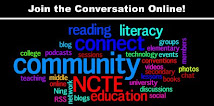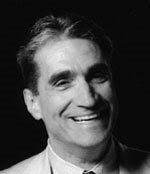 What
WhatA poetical celebration of Yusef Komunyakaa's birth, life and poetry.
When
Wednesday, April 23, 2008 at 7:00 PM
Where
Barnes & Noble Bookseller
3311 Tittabawassee Rd.
Saginaw , MI 48603
phone 989.790.9214
Who should come
Join us if you love poetry or are curious as to what poetry is all about. Join us if you'd like to talk to people whose hearts and minds are more open than closed. Join us if you can agree or disagree with someone's opinion respectfully. Bring a book if you can. It's OK if it's from your library. Note: Yusef Komunyakaa will not be joining our group.
Why
Find out what poems sound like out loud. Listen in on the group and then find a place where you can jump in and read something yourself. Great fun for the whole family. If you have specialized knowledge regarding our poet, do not hesitate to regale us with your story. Don't expect to leave our event with a definitive understanding of the poet or the poems but please do seek to experience and communicate the joys of poetry with others. Join in our informal discussion of poems we know and love and poems we are only just discovering. Better readers make better writers. Visit with our group where everyone's poetry is valued if not appreciated. If you have a smile to share be sure to bring it; otherwise be prepared to leave with one on your face and in your heart. If you're too far away to join us, create your own Birthdays of Poets Reader's Workshop. Speak up now and forever share your peace. Tell (bring!) a friend.
How to find the organizer(s)
We are in the Poetry section, near the window that affords a view of Tittabawassee Road. The staff at Barnes & Noble will put up a sign that says 'This space reserved for The River Junction Poets at 7 p.m.' We'll be getting a few folding chairs to add around the coffee table there.
Details
(Interviewer) What would you say the state of poetry is in America, by any definition? Where do you see poetry going? And where do you think it should go?
Komunyakaa: I've been kicking around the phrase neo-fugitives inside my head. What I mean by it is that there tends to be a fugitive sentiment that can be compared to John Crowe Ransom and Allen Tate. The creed states that basically the poet shouldn't get social or political. That he or she should do better to stick with the impressionistic and ethereal to the extent that true feeling evaporates off the oage. That's much safer, and too often it insures a poet's empty endurance and superficial reverence in the literary world.There's a sameness about American poetry that I don't think represents the whole people. It represents a poetry of the moment, a poetry of evasion, and I have problems with this. I believe poetry has always been political, long before poets had to deal with the page and white space . . . it's natural. Probably before Socrates, in Plato's Republic, banished poets from his ideal state – long before South Africa, Chile, Mississippi, and Marcos in the Philippines suppressing Mila Aguilar and others. There seems to be always some human landscape that creates a Paul Celan. Too many contemporary American poets would love to dismiss this fact. Of course, there are exceptions to this rule: Michael Harper, June Jordan, [Carolyn] Forche, [Adrienne] Rich, C. K. Williams, and [Amiri Imamu] Baraka. But still, if you were to take many magazines and cut the names off poems, you would have a single collection that could be by any given poet; you could put one name on it, as if the poems were all by one person. True, a writer can say almost anything in America and have it completely overlooked, yet I think we should have more individual voices.
from "Lines of Tempered Steel: An Interview with Vincente F. Gotera," Callaloo 13:2 (1990)
From http://www.english.uiuc.edu/maps/poets/g_l/komunyakaa/poetry.htm accessed 4/16/08
Historically, the African American has had to survive by his or her sheer nerve and wit, and it often seems as if we have been forced to create everything out of nothing. Music kept us closer to the essence of ourselves. Thus, there is little wonder that the drum was outlawed in certain slave-owning locales. The drum was a threat because it articulated cultural unity and communication. But we of course began to clap our hands and stomp our feet to sustain that connection to who we are. Music is serious business in the African-American community because it is so intricately interwoven with our identity. Most of us don't have to strain to see those graceful, swaying shadows of contemporary America in cahoots with the night in Congo Square – committing an act of sabotage merely by dancing to keep the forbidden gods alive. …Jazz also worked for me as a way of reestablishing a kind of trust. A trust in what I had known earlier. For some reason, I think it directed me back to my need to say something.What do I mean by that? Whatever it is, maybe I'm trying to say it in these words, in a poem called "Blue Light Lounge Sutra for the Performance Poets at Harold Park Hotel": [Komunyakaa quotes the poem in its entirety, whose text is available in Neon Vernacular (Middletown: Wesleyan U P, 1993), p. 176] Essentially, that's what I'm talking about. You have to have that need to take risks, and they come to us in varied patterns and intensities. [Claude] McKay's protest sonnet "If We Must Die" took a risk in content. Why else was it read into the Congressional Record by Senator Henry Cabot Lodge? But McKay took few risks structurally. Poetry has always been associated with the elite, the leisure class, with "high" culture of Europe, and the African-American poet of the 1920s was still in almost the same dilemma as Phillis Wheatley when her work was defined by Thomas Jefferson as beneath a critical response. That is, well into this century the black poet was still aspiring to acceptance by whites, still biding for the wand of approval and recognition as a mere human being.Consequently, few black poets were willing to admit the influence of jazz because it was defined as "low" culture; it had been created by the descendants of Africa. Only during the 1960s did we begin to rediscover that which was ours, redefining ourselves with Africa as an emotional backdrop. Young black poets began to accept Langston Hughes and Frank Horne and those white poets associated with modernism – an American tongue and ear. Indeed, jazz shaped the Beat aesthetic, but that movement seemed a privilege only whites could afford. Blacks, fighting for inclusion, didn't have to ostracize themselves voluntarily. Of course, this was a cultural paradox. To many the Beat Movement was nothing more than the latest minstrel show in town with the new Jim Crow and Zip Coons, another social club that admitted hardly any women or blacks. Yet they said that Charlie Parker was their Buddha.The whole thing seemed like a love-hate complex magnified. …[Note: Komunyakaa's last reference is to Jack Kerouac's "239th Chorus" in Mexico City Blues which opens: "Charley [sic] Parker Looked like Buddha / Charley Parker who recently died / Laughing at a juggler on the TV." The legendary circumstances under which Parker died included the story that he had been watching at the very time of his demise Jimmy Dorsey of the Dorsey Brothers "Swing" Band – like Parker an alto saxophonist – performing on the network television show whose musical tastes made it a forerunner of the Lawrence Welk Show.]
from Robert Kelly, "Jazz and Poetry: A Conversation" (with Yusef Komunyakaa and William Matthews" in Georgia Review 46:4 (Winter 1992), pp. 645-646, 653-654.
From http://www.english.uiuc.edu/maps/poets/g_l/komunyakaa/blackjazz.htm accessed 4/16/08.
Facing It
My black face fades,
hiding inside the black granite.
I said I wouldn't,
dammit: No tears.
I'm stone. I'm flesh.
My clouded reflection eyes me
like a bird of prey, the profile of night
slanted against morning. I turn
this way--the stone lets me go.
I turn that way--I'm inside
the Vietnam Veterans Memorial
again, depending on the light
to make a difference.
I go down the 58,022 names,
half-expecting to find
my own in letters like smoke.
I touch the name Andrew Johnson;
I see the booby trap's white flash.
Names shimmer on a woman's blouse
but when she walks away
the names stay on the wall.
Brushstrokes flash, a red bird's
wings cutting across my stare.
The sky. A plane in the sky.
A white vet's image floats
closer to me, then his pale eyes
look through mine. I'm a window.
He's lost his right arm
inside the stone. In the black mirror
a woman's trying to erase names:
No, she's brushing a boy's hair.
Copyright © 1993 by Yusef Komunyakaa
From http://www.english.uiuc.edu/maps/poets/g_l/komunyakaa/onlinepoems.htm accessed 4/16/08.
Expect more at the Birthdays of Poets Blog. Go there now.
All best and see you Wednesday,
Andrew Christ
Legal stuff
Your e-mail address will not be sold or used by me for any purpose other than to promote these special events and the Birthdays of Poets Blog. If you prefer to not receive these messages, reply to this e-mail address (riverjunctionpoets at gmail dot com) and include the word 'unsubscribe' in the text of your message.
Parting Thoughts
Research indicates that better readers make better writers. Maybe this is why, in the Poet's Market, editors of literary magazines often recommend poets read more poetry. Are you not aware? You are a cultural event, and so is everyone else. Celebrate your humanity at Saginaw's Birthdays of Poets Reader's Workshop. May God continue to bless us mightily one and all. Be sure to thank a veteran for his/her service. Remember: only you can improve the audience for poetry. Please read, discuss and share responsibly. And vote.

-- "It is our goal to appreciate and improve our talents, to share our own work and to communicate the joys of poetry with others. Everyone's poetry is valued."
River Junction Poets Mission Statement






















No comments:
Post a Comment